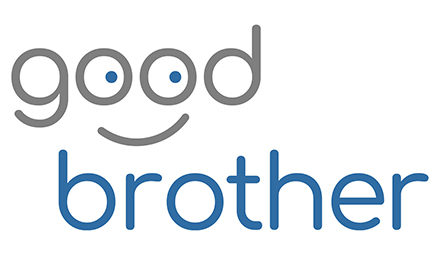18th IEEE International Conference on Automatic Face and Gesture Recognition
27-31 May 2024 (exact date to be confirmed), Istanbul, Turkey
The quest for responsible research is a cornerstone of an ethical, legal and social-aware approach to the development of assistive technologies. As technology advances – driven by the huge and rapidly evolving innovations through modern information and communication technologies – it penetrates private domains and interacts with personal, private, and intimate activities. It is a necessary requirement that any technology development should be carefully designed and balanced within societal, cultural and individual values, and norms.
Assistive technologies based on computer vision, multimedia data processing and understanding, and machine intelligence present several advantages in terms of unobtrusiveness and information richness. Indeed, camera sensors are far less obtrusive with respect to the hindrance that other wearable sensors may cause to people’s activities. Currently, video-based applications are effective in recognising and monitoring face expressions, activities, movements, and overall conditions of the assisted individuals as well as to assess their vital parameters (e.g., heart rate, respiratory rate). However, cameras are often perceived as the most intrusive technologies from the viewpoint of the privacy of the monitored individuals. This is due to the richness of the information that this technology conveys and the intimate setting where it may be deployed in. Therefore, solutions able to ensure privacy preservation by context and design as well as to ensure high legal and ethical standards are in high demand.
This workshop aims to give forum for contributions presenting and discussing image- and video-based applications for active assisted living as well as initiatives proposing ethical and privacy-aware solutions.
This workshop is supported by the GoodBrother COST Action (CA19121) on Privacy-Aware Audio- and Video-Based Applications for Active and Assisted Living and the visuAAL Marie Skłodowska-Curie Innovative Training Network on Privacy-Aware and Acceptable Video-Based Technologies and Services for Active and Assisted Living. The aim of these projects is to bridge the knowledge gap between users’ requirements and the appropriate and secure use of video-based AAL technologies to deliver effective and supportive care to older adults managing their health and wellbeing. They seek to increase awareness and understanding of the context-specific ethical, legal, privacy and societal issues necessary to implement visual system across hospital, home and community settings, in a manner that protects and reassures users; outputs will stimulate the development of a new research perspective for constructively addressing privacy-aware video-based working solutions for assisted living.
Topics
We seek contributions that include, but are not limited to:
- Video-based assistive technologies:
- Lifelogging and self-monitoring
- Human activity and behaviour recognition
- Personal and daily-life assistance
- Gesture recognition
- Emotion analysis and stress monitoring using different modalities
- Fall detection and prevention
- Emotional state recognition
- Affective Computing for People with Special Needs
- Emotion-aware human-robot interaction
- Affective applications to improve health and wellbeing of infants, children and teenagers with special needs
- Emotion aware embedded and robotic technologies
- Food intake monitoring
- Mobility assessment and frailty recognition
- Cognitive and motor rehabilitation
- User acceptance
- Awareness and understanding of context-specific ethical, legal, privacy and societal issues
- Privacy-aware technologies
- GDPR requirements of AAL solutions
- Responsible research for older people
- Fair systems
- Best practices for interdisciplinary collaborations between law, IT, care and/or sociology
Submission guidelines
Workshop papers will be published with the main conference proceedings.
Authors are invited to submit long and short papers in the IEEE format. Submissions should have no substantial overlap with any other paper submitted to FG 2024 or any paper already published. Papers presented in the workshop will appear in the IEEE Xplore digital library. Papers must follow the FG paper format (double-blind).
For inquiries about paper submission please write to fg2024@goodbrother.eu.
If a paper is accepted, it is assumed that an author will register and attend the conference to present the paper. Papers that are not presented will not be published in IEEE Xplore.
Important dates
- Paper Submission Deadline: March 31, 2024
- Notification of acceptance: April 7, 2024
- Camera ready: April 22, 2024
Invited speakers
To be confirmed
Chairs (in alphabetical order)
- Sara Colantonio, Institute of Information Science and Technologies of the National Research Council of Italy, Italy
- Francisco Florez-Revuelta, University of Alicante, Spain
- Martin Kampel, Computer Vision Lab, Vienna University of Technology, Austria
- Hatice Köse, Istanbul Technical University, Turkey
Secretary
- Cihan Topal, Istanbul Technical University, Turkey
Program committee
- Slavisa Aleksic, Leipzig University of Applied Sciences, Germany
- Duygun Erol Barkana, Yeditepe University
- Erhan Biçer, Istanbul Technical University
- Kenneth Camilleri, Centre for Biomedical Cybernetics, Faculty of Engineering, Department of Systems and Control Engineering, Malta
- Pau Climent-Pérez, Universidad de Alicante, Spain
- Stefania Cristina, University of Malta, Malta
- Kooshan Hashemifard, Department of Computer Technology, University of Alicante, Spain
- Hazim Hekel, Istanbul Technical University, Turkey
- Maria Antonietta Pascali, Signals & Images Lab, Institute of Information Science and Technologies, Italy
- Galidiya Petrova, TU Sofia, Bulgaria
- Yusuf Hüseyin Şahin, PhD Istanbul Technical University
- Maria Jose Santofimia, Universidad de Castilla-La Mancha, Spain
- Louis Simon, Sorbonne University
- Pinar Uluer, Galatasaray University

